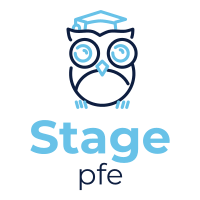
Writing a cover letter is one of the most challenging parts of the job application process.
You may have a great resume that highlights your skills and work experience, but if you don’t know how to write a cover letter that is targeted at the job you’re applying for, your application could be ignored by the hiring manager.
To make writing a standout cover letter as straightforward as possible, we’ve gathered all our top cover letter writing tips into one place.
Let’s get started.
1. Essential Tips For Writing a Cover Letter
The following are our core cover letter tips. If you get these right, you’re already off to a great start.
Write a Completely New Cover Letter For Each Job
If there’s one piece of cover letter advice all job seekers should follow, it’s this: write a unique cover letter for every job you apply to.
While it’s extra work to craft a fresh letter each time, employers can tell if you’re sending a generic application. Writing a one-size-fits-all cover letter for multiple companies is the number one reason cover letters get trashed.
You can recycle key points about your experience, but taking the time to tailor your cover letter to your target job instantly elevates your application above the others that the hiring manager sees.
Use a Cover Letter Template
Because writing a new cover letter for every job takes additional effort, one way to save time is to use a cover letter template.
When customizing a template, you don’t need to worry about margins or font — everything is already set to highlight your skills and meet HR best practices.
Plus, you can make your entire application stand out even further by using matching cover letter and resume templates. It’s a small design touch, but the hiring manager will notice your attention to detail if your documents match.
Make Sure Your Cover Letter is Only One Page
One page is the standard cover letter format across industries. Although it may seem like a good idea to go into great detail about your experience to try and make a positive impression, if the information doesn’t fit onto one page it’s best saved for the interview.
Hiring managers are busy people who look at hundreds (if not thousands) of applications when they advertise a position. Keeping things brief not only highlights that you know how to present information clearly, but make things easier for your potential employer.
2. Advice For Starting Your Cover Letter
Many candidates spend a long time staring at an empty page, unsure of how to start writing. Use the following tips to write a great cover letter introduction every time.

Find the Hiring Manager’s Name
“To Whom it May Concern” is an outdated and generic opening, which shows that you didn’t take the time to personalize your cover letter.
To make a more positive impression, look online to find the hiring manager’s name and then address your cover letter to them directly. If you can’t find their details, look for the name of a relevant department head. If you can’t find either, writing “Dear Hiring Manager” is still better than “To Whom it May Concern.”
Alternatively, call the company and ask who you should address your cover letter to. This won’t be held against you — they’ll see that you’re being proactive.
Find out how to address a cover letter to learn several other ways to make an impression with your greeting.
Nail the Opening Line
Putting a creative spin on the opening line of your cover letter is a challenge, but if done correctly, your cover letter will be miles ahead of the competition.
Try to avoid writing “My name is…” in the opening sentence. Introducing yourself is unnecessary because the hiring manager already knows your name from your resume.
A more effective tactic is to lead with an accomplishment, an interesting reason for applying, or an example of your passion for the role or industry. By removing unnecessary formalities, you can immediately describe your motivation and abilities, freeing up space on the page for more valuable insights into why you’re the best person for the job.
3. Writing Tips For the Body of Your Cover Letter
The body of your cover letter is where you showcase your skills and achievements. Here is your opportunity to really impress the hiring manager.
Research Your Target Company
In order to write a tailored cover letter, you need to research your target company beyond simply reading the job ad.
Learn about the company, their goals, and their culture. Even 30 minutes of browsing their website can give you a feel for the company, which helps you explain why you’re a good fit to work there. Taking this approach gives you a huge advantage over candidates who wrote a generic application.
If you understand a company’s vision, you can use your cover to explain how you can help achieve it if they hire you. The more research you do, the better.
Don’t Recycle Information From Your Resume
Many candidates research their target companies, but still treat their cover letter as an extension of their resume and repeat information.
Don’t make the mistake of simply restating points you’ve already made — use your cover letter to go into more detail about your accomplishments.
Telling the story of your accomplishments gives them more context, which you can then connect to the new situations you’d potentially be working in. Doing this also gives you the opportunity to demonstrate knowledge of your industry and show you’re aware of trends.
When they first start writing, many candidates wonder are cover letters necessary? When you start thinking of how you can go beyond your resume, it’s clear that they are.
Use Action Verbs to Reinforce Your Experience
Using action verbs is a powerful way to strengthen the language of your cover letter. With space at a premium, strong verbs showcase your skills — they’re the difference between demonstrating you’re a high performer versus someone who just completes their duties.
Check out this example for a marketing manager:
“Supervised a team of 7 people and coordinated daily outreach efforts”
Strong verbs paint a more accurate picture of what you did, and is refreshing to a hiring manager who reads the same phrases on every application they see. Remember to use them sparingly though — including too many action words dilutes their impact.
Don’t Apologize
Many candidates feel they need to apologize if they have career gaps or if they feel they don’t fully meet the company’s requirements.
Hiring managers understand life situations that lead to a break in employment — they’re more interested in how you would perform at the role. Likewise, because many skills are transferable, working in a different industry isn’t necessarily a weakness.
Explain how your skills and accomplishments directly translate to the role you’re applying for and focus attention on your strengths.
Strengthen Your Achievements With Numbers
What’s the best way to prove you actually have the abilities and skills you put on your resume?
The answer is use numbers to quantify your responsibilities. Including simple statistics in your cover letter not only proves you can do what you claim, but shows you’re focused on results.
In addition, translating your skills into dollars, time frames, and percentages gives the hiring manager a clear picture of how you will benefit the company and improve its bottom line.
You don’t have to work with numbers — any job responsibility can be quantified. For example, if you worked in a restaurant serving customers, say how many people you served per day or per hour.
Show How You’ll be Invaluable to Your Target Company
In addition to using numbers to quantify your achievements, go one step further and say how your past achievements will help your target company in the future.
Many enthusiastic candidates explain at length in their cover letters how excited they are about the position being advertised, and how it will benefit them. Instead, say how your experience will benefit your potential employer.
Use your cover letter to identify the problems the company needs to solve by hiring for this role, and then say why you’re the best candidate to help solve them.
Never Describe Yourself Using Buzzwords
Using active language and strong verbs makes your cover letter more skills-focused, but it’s simultaneously vital to avoid clichés.
Even if you are in fact a people person who thinks outside the box, your next job may depend on you finding a better way to say it.
Clichés make your cover letter less descriptive and meaningful. Recruiters and hiring managers don’t have the time to decipher your buzzwords — they want to know what you’ve achieved in your career and how you can succeed in the advertised role.
Show them that by using simple, clear language.
4. Cover Letter Tone and Voice Guidelines
Describing your abilities is only half the battle — you also need to ensure your cover letter’s style adheres to industry standards and resonates with your target company.
Balance Formality with Personality
Striking the right balance between formal and informal is key to writing a cover letter. You don’t want to be dull, but neither do you want to seem inexperienced.
The tried and tested approach is as follows: be professional, but don’t sound robotic.
That means show personality within professional boundaries. Be yourself, but keep things like humor and exclamation marks (!) to a minimum. A well-written cover letter shows you’re experienced in your field, but also approachable and human.
Be Passionate But Not Too Enthusiastic
When we say “be yourself,” we don’t mean go all in on the enthusiasm. You’re understandably excited for the opportunity, but expressing this poorly can make you seem immature or too eager.
Let your achievements speak for themselves.
Don’t Be Too Modest
Many job seekers are so focused on being truthful on their application that they end up downplaying their achievements. You should never lie or misrepresent yourself in your cover letter, but don’t be shy about stating how much you have accomplished in the workplace.
Try writing your achievements from the perspective of a friend or mentor, and see how it sounds. Chances are, it’s not bragging, just an accurate representation of your hard work.
Understand the Company’s Voice
When considering the overall tone of your writing, make sure that it matches that of your target company.
Read the company’s website to get a feel for their voice. Applying for a job as a copywriter at a tech company is very different to applying for a senior management role at an accounting firm. Once you understand the audience for your cover letter, everything about how to present your skills and experience falls into place.
5. Final Cover Letter Advice
Before you submit your cover letter, read these final cover letter tips to make sure you end on a high.
Include a Call to Action
If you’ve followed our advice so far, you’ve likely crafted a highly persuasive cover letter. Now it’s time to finish with a killer cover letter closing.
Once you’ve described your skills and experience, the hiring manager likely views you as a potential asset. All they need is an extra prompt to get in touch.
We call this a call to action.
Simply state that you’d love to be interviewed, include your contact details, and then say you’ll be in touch within a week if you don’t hear anything. This treads the line between being confident and pushy, and is the perfect way to complete your cover letter.
Write an Optional P.S.
For candidates with a unique selling point, there is one final weapon left in your cover letter arsenal: a P.S.
Writing a PS at the end of your cover letter is entirely optional, and not always effective. However, if there is one special skill or achievement that differentiates you as a candidate, this is the place to mention it.
Because of its placement, a hiring manager will likely read the PS before they start reading your cover letter, and then again after they finish. Whatever you write here will stay in their mind.
Use a Proven Closing
While there are numerous ways to sign off a letter, anything other than the standard closings can potentially send the wrong signal.
If in doubt, use one of these:
- Sincerely
- Regards / Kind regards / Best regards
- Thank you
- Respectfully
Even if you wrote the perfect cover letter, ending it with an inappropriate or overfamiliar closing ruins the positive impression you just made.
Have Someone Else Read Your Cover Letter
Now that your cover letter is in good shape, it’s time to sit back and relax — after you’ve had someone else check it for you.
Having a friend read your cover letter gives you a fresh perspective and the opportunity for feedback on how you presented yourself. They’ll notice things you didn’t.
Of course, don’t forget to proofread your cover letter yourself too before you send it.
Once you’ve sent your cover letter, well — it’s up to the hiring manager what happens next. If you followed our tips, you should be in great shape.
Good luck!
Need more help writing your cover letter? Check out some of our other cover letter resources below:

